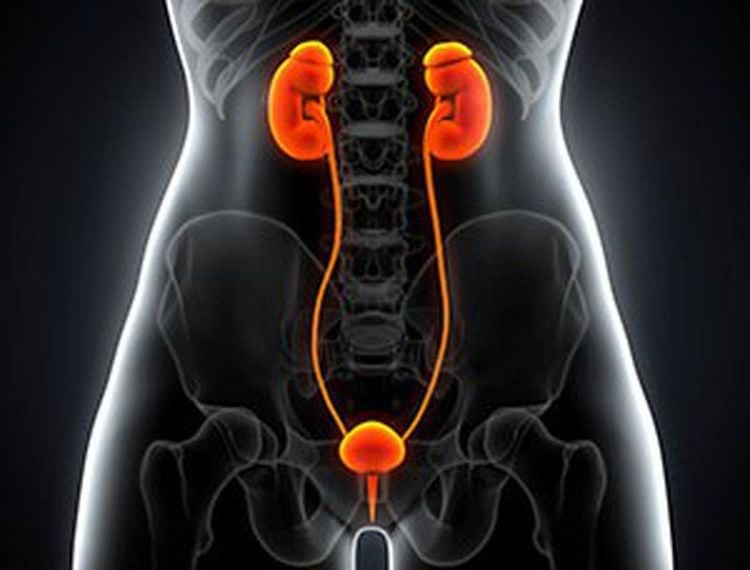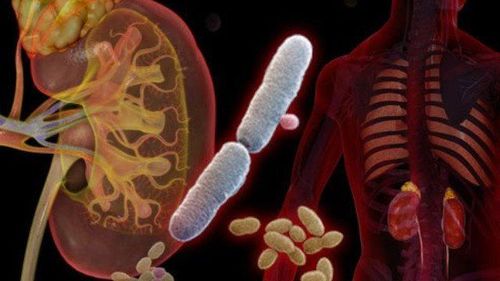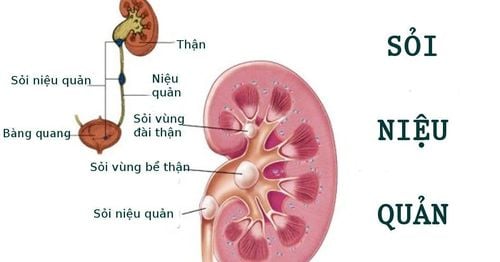This is an automatically translated article.
Symptoms of urethral syndrome are similar to urethritis and urinary tract infections. These symptoms include abdominal pain, bloody urine and pain, causing discomfort for the patient.
1. What is urethral syndrome? Causes of urethral syndrome
The urethra is a small tube that connects the bladder to the outside of the body. Urethral syndrome is the term for symptoms that can occur when the urethra becomes irritated and swollen, causing the urethral lumen to narrow, which can make it difficult to urinate. Urethral syndrome occurs in both men and women.
Hội chứng niệu đạo xảy ra cả ở nam và nữ giới
Currently, the exact cause of urethral syndrome cannot be found. However, certain medical conditions and environmental factors can increase the risk of developing urethral syndrome. Specifically:
Unusual narrowing of the urethra or irritation, trauma to the urethra during rough sex, use of a diaphragm, use of tampons, etc. If you are undergoing chemotherapy and radiation therapy, it is possible acute urethral syndrome occurs. Sexually transmitted diseases such as gonorrhea, chlamydia and genital mycoplasma, etc. are one of the risk factors for urethritis. Irritant items and solutions; Chemicals in soaps and birth control methods may contain chemicals that irritate the urethra. When you have UTIs, bladder and kidney infections can cause urethritis because the urethra is very sensitive. Some drugs that cause urethritis include drugs that suppress the immune system. Women who have had multiple births have an increased risk of urethritis.

Các bệnh lây qua đường tình dục làm tăng nguy cơ gây bệnh
2. Symptoms of urethral syndrome
Symptoms of urethral syndrome are similar to urethritis and urinary tract infections. In both men and women, urethritis and urethral syndrome can cause symptoms such as:
Blood in the urine. Pain in the lower abdomen, lower back; pressure in the abdomen. Urgent urination, urinating more often. Difficulty urinating, even urinary retention. Pain during urination and sex. Men have swollen testicles, pain during ejaculation, and blood in the semen. In women, urethral syndrome can also cause discomfort in the vulva area.
3. Diagnosis and treatment of urethral syndrome
3.1 Diagnosing urethral syndrome In addition to making a diagnosis based on clinical symptoms, the doctor can take the following additional steps to diagnose the disease:
Examination of the urine sample Take a blood sample for testing Ultrasound on the area patient's pelvis.

Xét nghiệm máu chẩn đoán hội chứng niệu đạo
3.2. Treating urethritis Lifestyle changes, medications, and surgery can help relieve your symptoms and prevent the condition from coming back.
Lifestyle changes: Do not use products or perform activities that can irritate the urethra. Avoid wearing too tight pants, have safe sex, ... are methods to support the treatment of urethral syndrome. Medications: Antibiotics are often used if the doctor suspects an infection shows up on tests; antispasmodics; antidepressants that work on your nerves to help relieve pain; alpha blockers to improve blood flow. Surgery: If lifestyle changes and medications don't work, your doctor may widen your urethra by performing surgery (only surgery for urethral spasms). Customers wishing to be examined at Vinmec International General Hospital can register for an examination at the nationwide Vinmec Hospital and Clinic system HERE.













